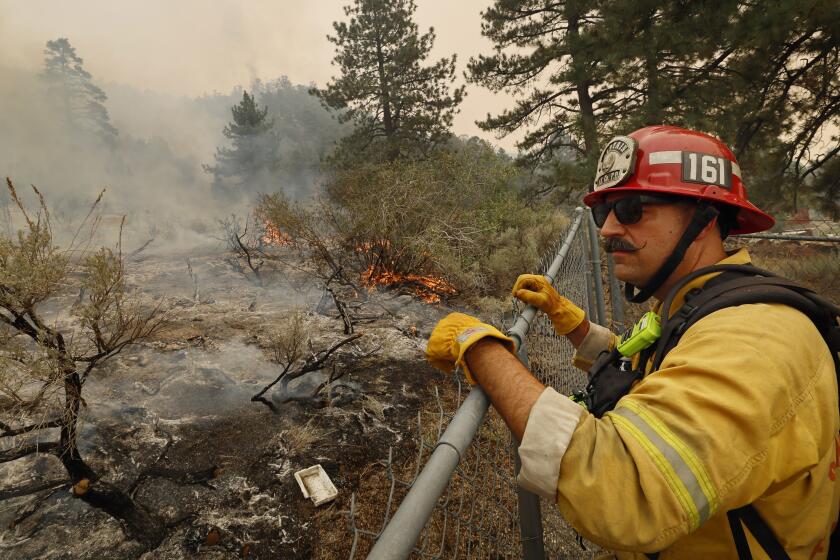Ruling Widens Sex Offender List
A person convicted of possessing child pornography in his home may be required to register as a sex offender for the rest of his or her life, the California Supreme Court ruled unanimously Monday.
The state high court overturned a 1983 precedent that had prevented the state from requiring registration for people convicted of engaging in or soliciting lewd or dissolute conduct in a public place.
The state Supreme Court, under the late Chief Justice Rose Bird, had ruled that requiring registration for such a relatively minor offense was cruel and unusual punishment. But Monday’s ruling said that being required to register as a sex offender was not punishment at all.
Instead, the court said, the registration requirement was a regulatory measure designed to assist law enforcement and to protect the public.
“A requirement for mere registration by one convicted of a sex-related crime, despite the inconvenience it imposes, cannot be considered a form of ‘punishment’ ” under the state or federal constitution, Justice Marvin Baxter wrote for the court.
The ruling makes it more difficult to challenge registration requirements, even for relatively minor sex-related crimes.
“It will undoubtedly strengthen the state’s case that legitimate regulatory interests can justify lifetime registration for even minor crimes,” said McGeorge School of Law Professor J. Clark Kelso.
After the Bird court’s 1983 decision limiting who could be required to register, the state Legislature dropped the registration requirement for engaging in lewd conduct in public. The Legislature is now free to reinstate it, Kelso said.
Monday’s decision requires Leon Casey Alva, 27, who was convicted of possessing child pornography in his Canoga Park home seven years ago, to continue to register as a sex offender.
Alva had cited the 1983 precedent in arguing that the registration requirement for his offense also represented cruel and unusual punishment. Alva served three years’ probation for the misdemeanor.
Steven T. Flowers, Alva’s lawyer, said his client was “not a pedophile.” Flowers said someone tipped off police to Alva’s possession of the child pornography, and officers searched his home.
He said Alva must register with the local police department at any location where he spends five days or longer. Alva, who works in the music industry, also was barred from using a computer during his probation and was required to be evaluated by a psychiatrist, Flowers said. The psychiatrist found that Alva represented no danger to children, the lawyer said.
“A person who is clearly not a sex offender and not a danger to anyone is now required to register for life as a sex offender,” Flowers said. “It is ignorant and idiotic to waste government resources tracking someone who had a film in a drawer.”
Los Angeles City Atty. Rocky Delgadillo praised the state high court for “reinforcing the need to protect children.”
“Sex offender registration is a necessary tool that parents and law enforcement can use to keep children safe from sexual predators,” Delgadillo said.
Delgadillo’s office, which prosecuted Alva, said in court papers that police found in Alva’s home several videos of child pornography and a pornographic poster depicting minors.
Monday’s ruling was limited to sex offender registrants whose identities are not publicly disclosed. Persons convicted of more serious sex crimes are kept in a database that is accessible to the public.
The 1983 precedent that Monday’s decision overturned involved a gay man who was charged with soliciting lewd conduct from an undercover sheriff’s deputy in a public restroom. At the time of that ruling, only five states, including California, required registration of sex offenders. Since then, “virtually every state” has enacted such a law, the state high court observed.
“The Legislature must have regulatory leeway to deal with the serious problem of recidivist sex offenses,” Baxter wrote. “Though Alva suggests otherwise, this leeway certainly extends to crimes that involve or promote the pornographic exploitation of children.”
Possession of child pornography is one of many sex offenses requiring registration. Others include indecent exposure, pimping and pandering.
More to Read
Sign up for Essential California
The most important California stories and recommendations in your inbox every morning.
You may occasionally receive promotional content from the Los Angeles Times.











